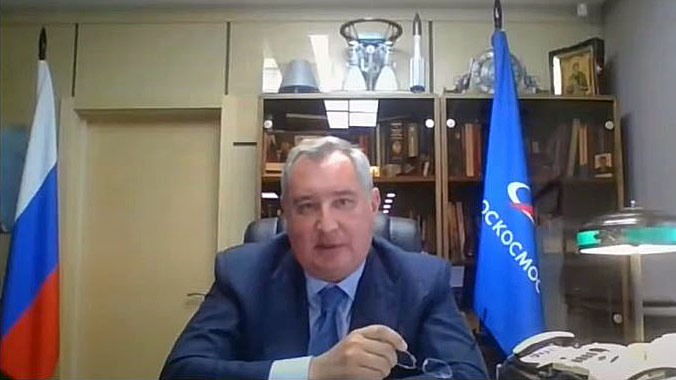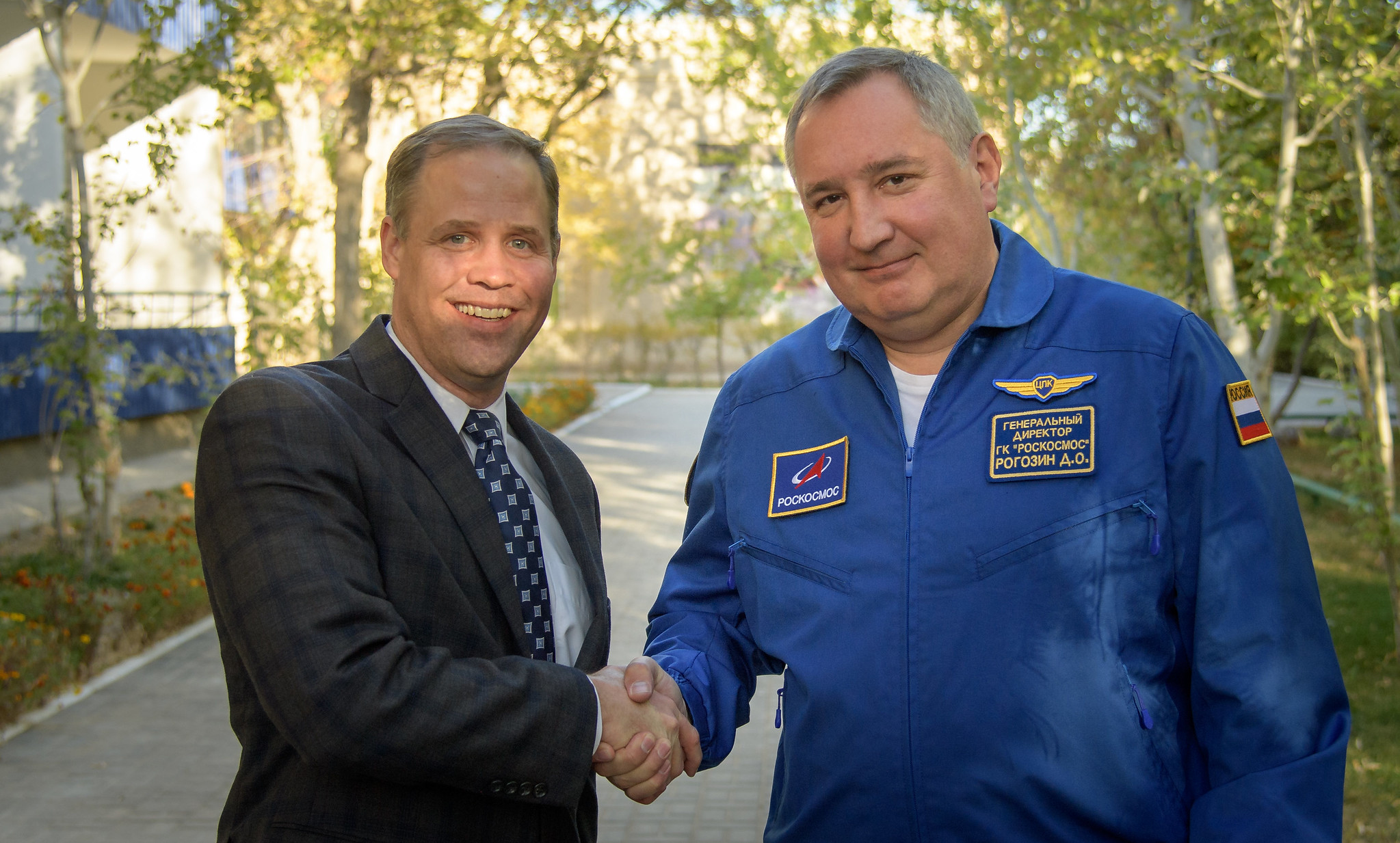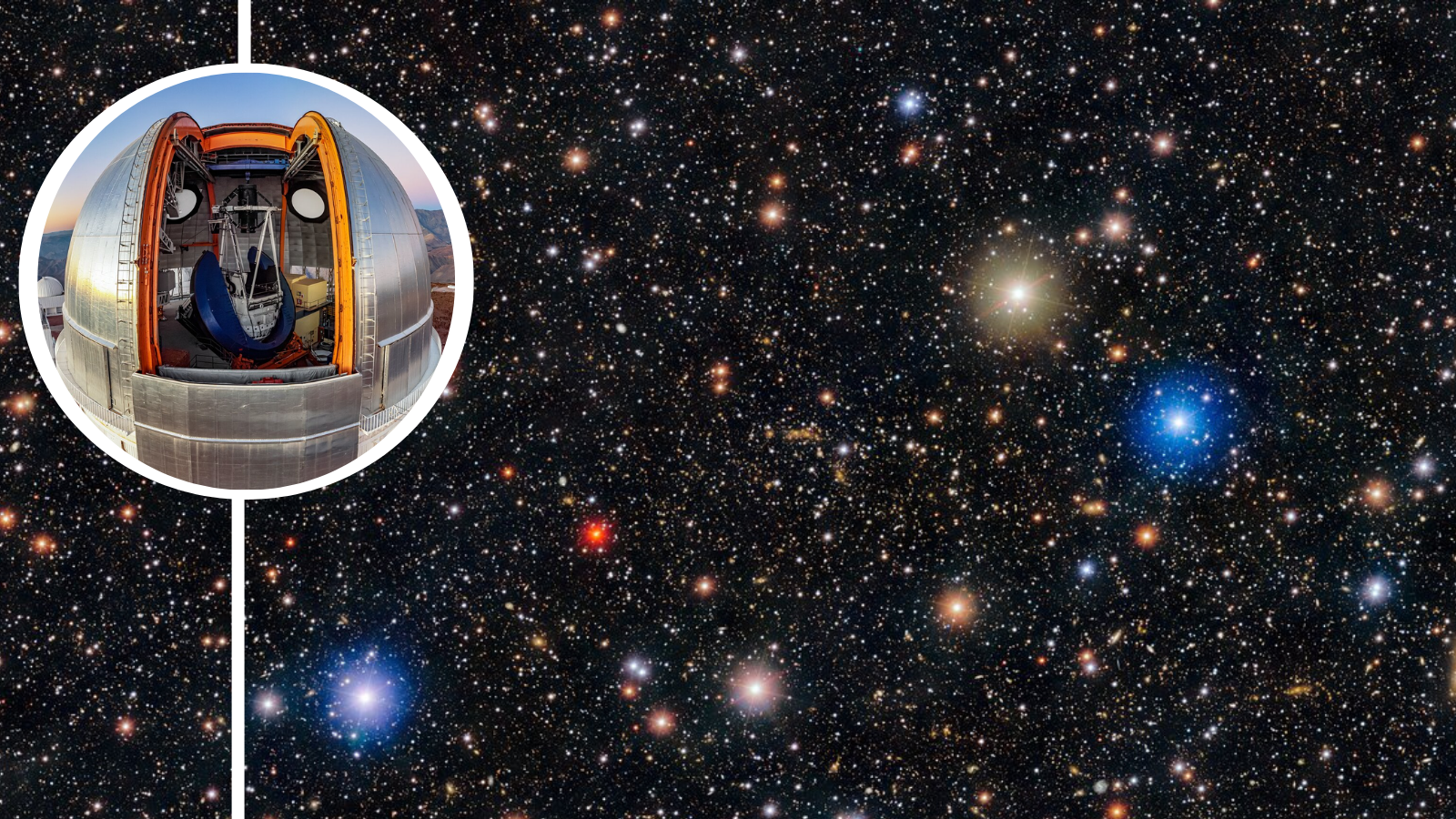Russian space chief disses NASA's Artemis moon landing plans

The head of Russia's space agency criticized NASA's plans to return to the moon of being "too U.S.-centric" as the heads of seven space agencies met virtually at the 71st International Astronautical Congress.
Speaking at a Heads of Agencies panel on Oct. 12, Dmitry Rogozin, director general of Roscosmos, said it was likely that the agency would participate on a large scale in one aspect of NASA's moon plans.
"In our view, the lunar Gateway in its current form is too U.S.-centric," Rogozin said at the virtual meeting, through an interpreter. The Gateway is a lunar orbit space station meant as an outpost for visits to the lunar surface by astronauts.
Related: Europe will help build NASA's moon-orbiting Gateway space station
Rogozin did not completely close the door on the Gateway, however, expressing the hope that the design of a docking module allows for visits. "If Russia builds its own space transportation system, we need to have an opportunity to dock" with the Gateway, he said. Russia is working on a prospective new generation system named Orel for crewed missions.
The Roscosmos head also noted in his comments that Russia's Nauka, or Multipurpose Laboratory Module, due to launch in April 2021, will see a multi-docking hub integrated into the Russian segment of the International Space Station (ISS). Roscosmos has previously talked of forming its own, independent space station with its newer modules following the end of the ISS project.
Rogozin added in a press conference following the panel session that the ISS provided a good base of principles of international cooperation.
Breaking space news, the latest updates on rocket launches, skywatching events and more!
NASA Administrator Jim Bridenstine stated in the same press conference that the Gateway uses the same intergovernmental agreement established for the ISS.
Rogozin has a history of negative comments towards U.S. space initiatives. He had previously dismissed the Artemis Accords — a proposal by NASA to set out common principles for lunar exploration and potential exploitation of its resources — through his now-deleted Twitter account.
In 2014, when he was Russia's deputy prime minister, Rogozin reacted against sanctions imposed by the United States in response to Russia's invasion of Ukraine by suggesting that the U.S. send their astronauts to the ISS using a trampoline. At the time Russia's Soyuz was the only way to reach the ISS.
That comment was answered six years later by Elon Musk, who declared 'the trampoline is working!' following the launch of SpaceX's first crewed mission in May, the Demo-2 test flight, to the ISS.
Rogozin reacted to the Demo-2 mission with a lengthy June op-ed, in which he expressed mixed feelings.
Conversely Rogozin was warm in his words towards China. "I would like to mention [the] especially open and friendly relations with China, and China National Space Administration and its head, Mr Zhang Kejian," Rogozin said, adding "we believe there is more to come in these relations."
The two sides last year agreed to establish a joint data center for lunar and deep space exploration, as well as collaboration on Russia's Luna 26 orbiter spacecraft and China's Chang'e 7 lunar south pole landing mission.
China is developing a plan to establish a robotic lunar base, named the International Lunar Research Station (ILRS), and is seeking partners. The ILRS is to be constructed across a similar timeline to that of NASA's crewed Artemis program. China will look to follow that up with a crewed lunar project and is developing both a new launch vehicle and new crewed spacecraft capable of such missions.
Meanwhile Russia is training four Indian astronauts at the Gagarin Cosmonaut Training Center near Moscow to support India's crewed Gaganyaan project. The prospective astronauts arrived in February and are expected to complete their training at the facility in early 2021.
The Indian Space Research Organisation's (ISRO) Gaganyaan project seeks to send astronauts into space before the 75th anniversary of India's independence in 2022.
Follow us on Twitter @Spacedotcom and on Facebook.

Andrew is a freelance space journalist with a focus on reporting on China's rapidly growing space sector. He began writing for Space.com in 2019 and writes for SpaceNews, IEEE Spectrum, National Geographic, Sky & Telescope, New Scientist and others. Andrew first caught the space bug when, as a youngster, he saw Voyager images of other worlds in our solar system for the first time. Away from space, Andrew enjoys trail running in the forests of Finland. You can follow him on Twitter @AJ_FI.

